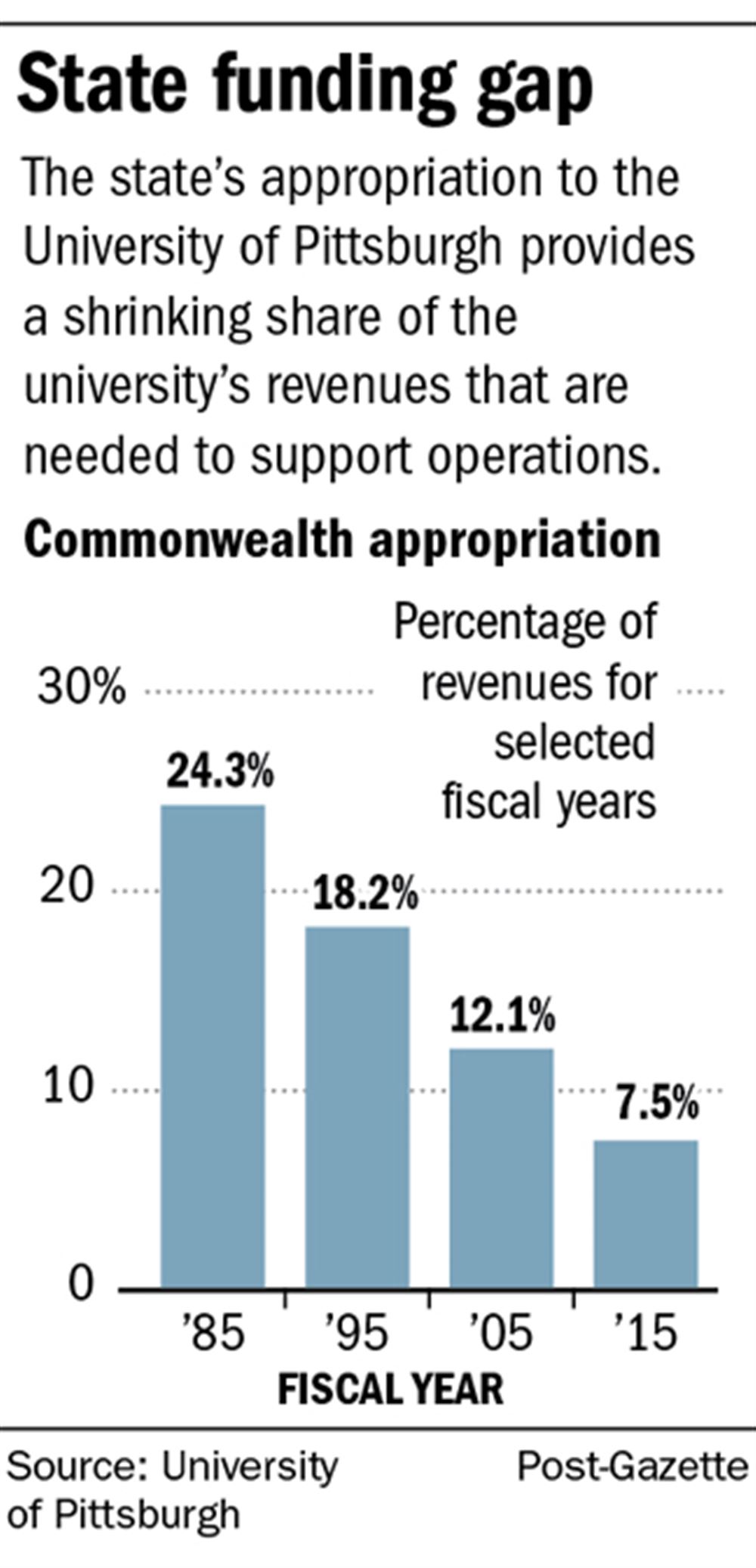Well, I can't leave you hanging. Of the 36 voting members on Pitt's current board, there are exactly two that attended Penn State, one of whom also holds a degree from Pitt. Both are Commonwealth Trustees, one appointed by the Governor and one appointed by the Pennsylvania Senate, meaning that Pitt had no real control in their appointment. I guess you could count another appointment by the PA House that graduated from the Dickinson School of Law 28 years before Penn State bought it, but I think most people would consider that quite a stretch.
Below are the academic degrees held by Pitt's voting board member so that this stupid urban myth can be put to rest. 27 of 36 seats are held by individuals with Pitt degrees. 22 of 24 seats within the university's control are held by individuals with Pitt degrees, and none of the seats within Pitt's control are held by anyone that attended PSU. At least one additional Commonwealth appointee that isn't a Pitt grad is married to one and has a parent that was one, and has endowed a fund at Pitt. No non-voting Special Trustees have a PSU degree and 11 of 14 are Pitt grads.
36 Pitt voting trustees (2017-18)
Chancellor (hired by BOT)
1. Patrick Gallagher - Benedictine College BS,
Pitt A&S PhD '91
Term Trustees (elected by BOT)
2. Eva Tansky Blum (Chair) -
Pitt A&S '70,
Pitt LAW '73
3. John A. Barbour - Davidson BA, Vanderbilt JD
4. Mary Ellen Callahan -
Pitt A&S '90, Chicago JD
5. James Covert -
Pitt A&S '91
6. Edward J. Grefenstette - Georgetown BA, JD ; CMU MBA
7. Ira J. Gumberg -
Pitt A&S '75, Harvard Adv Manag Prg
8. Dawne S. Hickton - Rochester BS,
Pitt LAW '83
9. Patricia D. Horoho - UNC-Chapel Hill BS,
Pitt NURS '92G
10. Terrence P. Laughlin - SFU BS,
Pitt KGSB '81G
11. Robert G. Lovett -
Pitt A&S '66, Duquesne JD
12. Roberta A. Luxbacher -
Pitt ENG '78
13. Martha Hartie Munsch -
Pitt A&S '70, Yale JD
14. John H. Pelusi Jr. -
Pitt A&S '77,
Pitt GSPIA '79
15. Stephen R. Tritch -
Pitt ENG '71,
Pitt BUS '77G
16. Thomas E. Richards -
Pitt A&S '76, MIT Manag MS
17. Keith E. Schaefer -
Pitt A&S '71, UCLA Business
18. William E. Strickland Jr. -
Pitt A&S '70
Alumni Trustees (elected by BOT on nomination by PAA board)
19. Jane Bilewicz Allred -
Pitt A&S '71, Kent State MEdu
20. Michael A. Bryson -
Pitt A&S '68, Harvard MBA
21. S. Jeffrey Kondis -
Pitt ENG '77,
Pitt KGSB '82
22. F. James McCarl III -
Pitt CGS '73
23. Larry J. Merloj -
Pitt PHARM '78
24. Jack D. Smith -
Pitt A&S '69,
Pitt MED '73
Commonwealth Trustees (Appointed by PA Governor, House, or Senate)
25. Jay Costa Jr. - CCAC AS, IUP BS, Duquesne JD
26. Bradley J. Franc - PSU BS,
Pitt LAW '87
27. Sy Holzer - Duquesne BS, Penn MS,
Pitt KGSB Exec Manag Prg
28. Thomas O. Johnson II -
Pitt UPG BS '99
29. William K. Lieberman - PSU BS
30. John A. Maher III - Duke AB, Australian GSM, Oxford
31. Herbert S. Shear - Southern Illinois BS, MS
32. Thomas VanKirk - Bucknell BS, Dickinson JD
33. Peter C. Varischetti - IUP BA, Duquesne JD
34. John J. Verbanac -
Pitt CGS '90
35. Jake Wheatley Jr. - NC A&T BA,
Pitt GPSIA '00
36.
vacant
Pitt non-voting Special Trustees (elected by BOT)
G. Nicholas Beckwith III - Brown BS
Douglas M. Browning -
Pitt A&S ’72, Hofstra JD
Louis R. Cestello - W&J BA, Duquesne MBA
David C. Chavern -
Pitt A&S ’83, Villanova JD, Georgetown MBA
Brian Generalovich -
Pitt A&S ’66, Pitt DENT ’68
Deborah J. Gillotti -
Pitt A&S ’77, Georgetown MS
Tamara M. Haddad -
Pitt A&S ’79
Robert M. Hernandez -
Pitt A&S ’66, Penn MBA
Thomas M. Kurtz -
UPJ ’77, St. Thomas MBA
Marlee S. Myers -
Pitt A&S ’74,
Pitt LAW ’77
Robert P. Randall -
Pitt A&S ’67
Jeannine T. Schoenecker - Edinboro BA
Shawndya L. Simpson -
Pitt A&S ’87,
Pitt LAW ’90
Sam S. Zacharias -
Pitt A&S ’64
